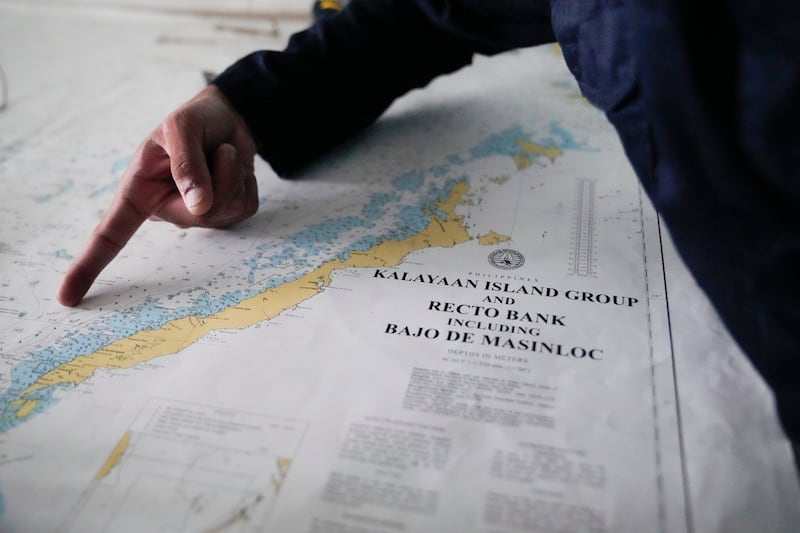Australia’s top diplomat urged ASEAN on Wednesday to be vigilant in upholding the territorial rights of member-states that have claims in the South China Sea as the bloc negotiates with China for a maritime code of conduct.
Australia, a “middle power,” is not a party to disputes in the strategic waterway but it has a stake in keeping the vital sea lanes open and peaceful, Foreign Minister Penny Wong said during a visit to Manila.
“We respect ASEAN centrality and they have, as an entity, a right to discuss these issues,” Wong said of the 10-member Association of Southeast Asian Nations, which includes the Philippines.
“All we are saying as a party that has an interest, as many do in the South China Sea and in international law, is we would urge states not to agree to anything that lessened their rights,” she said during an interview with CNN Philippines, according to transcripts released by her office.
Wong, who is making her first visit to the Philippines as foreign minister, emphasized that Australia’s interests align closely with those of the Southeast Asian nation, noting that Canberra has had a Status of Visiting Forces Agreement with Manila since 2012. The agreement allows Australian troops to participate in training missions in the Philippines.
While she did not mention China by name, Wong noted that “there’s a lot of competition” in the South China Sea that necessitates working with each other.
“Well, our national interest, I believe, aligns with your national interests very closely. And that is we all want a region that is stable, peaceful and prosperous – and we all want a region in which rules ameliorate the exercise of power,” Wong said.
She said Australia backed the Philippines in asserting its “national interests” tied to an international arbitral tribunal’s favorable ruling in 2016, after Manila took Beijing to court over occupying Scarborough Shoal in the South China Sea.
“We don’t want a region which is dominated to an extent where other countries cannot make their own decisions. And so for us, the U.N. Convention on the Law of the Sea [UNCLOS] is important. It matters, and as I know it does to the Philippines, it’s about safeguarding your resources, it’s about safeguarding your sovereignty. And we want to work with you and others on that,” she said.

Wong noted that any document impacting the rights of states under international law to exercise freedom of navigation and conduct military exercises with partners in the region “would be a cause of concern for Australia.”
The code is being drawn up by China and ASEAN to serve as a more binding version of a 2002 Declaration on the Conduct of Parties in the South China Sea.
The accord is expected to help manage tensions and reduce the risk of confrontations where China has overlapping territorial claims with the Philippines, Brunei, Vietnam and Malaysia. Taiwan also has claims in the waterway.
Wong plans to be in the Philippines until Friday – she is expected to meet with Filipino business leaders as well as the coast guard during her stay.
Philippines: sincere dialogue ‘crucial’
The Australian foreign minister appeared in the TV interview a day after Philippine Foreign Secretary Enrique Manalo told academics in Japan that Manila wanted greater cooperation with Tokyo focusing on maritime issues, particularly on domain awareness and law enforcement.
“To achieve a peaceful and UNCLOS-based regime, sincere dialogue among all claimants is crucial, both bilaterally and through discussions between ASEAN and China on a code of conduct,” Manalo said Tuesday.
“The Philippines advocates for an effective and substantive code of conduct that adheres to UNCLOS and takes into account the interests of all stakeholders, even extending beyond ASEAN and China.”
Manila and Tokyo are embroiled in maritime disputes with Beijing over the South China Sea and East Asia, respectively.
Manalo said that the Philippines was advocating for a code of conduct even as he stressed that “repeated infringements” on its sovereign rights also “necessitate the enhancement of our defense capabilities.”
